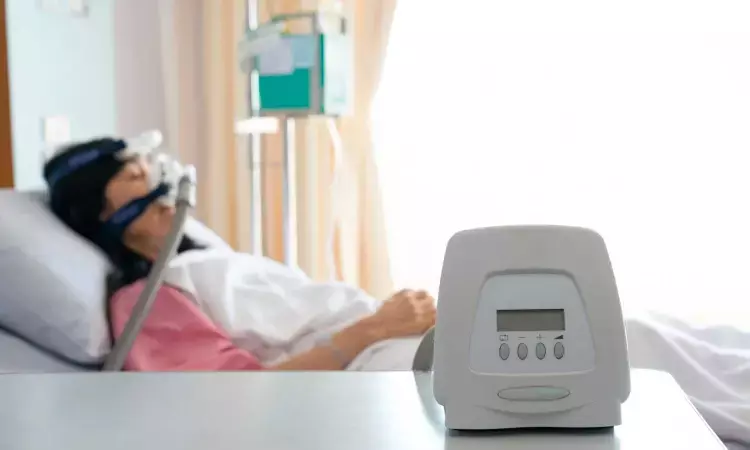- Home
- Medical news & Guidelines
- Anesthesiology
- Cardiology and CTVS
- Critical Care
- Dentistry
- Dermatology
- Diabetes and Endocrinology
- ENT
- Gastroenterology
- Medicine
- Nephrology
- Neurology
- Obstretics-Gynaecology
- Oncology
- Ophthalmology
- Orthopaedics
- Pediatrics-Neonatology
- Psychiatry
- Pulmonology
- Radiology
- Surgery
- Urology
- Laboratory Medicine
- Diet
- Nursing
- Paramedical
- Physiotherapy
- Health news
- Fact Check
- Bone Health Fact Check
- Brain Health Fact Check
- Cancer Related Fact Check
- Child Care Fact Check
- Dental and oral health fact check
- Diabetes and metabolic health fact check
- Diet and Nutrition Fact Check
- Eye and ENT Care Fact Check
- Fitness fact check
- Gut health fact check
- Heart health fact check
- Kidney health fact check
- Medical education fact check
- Men's health fact check
- Respiratory fact check
- Skin and hair care fact check
- Vaccine and Immunization fact check
- Women's health fact check
- AYUSH
- State News
- Andaman and Nicobar Islands
- Andhra Pradesh
- Arunachal Pradesh
- Assam
- Bihar
- Chandigarh
- Chattisgarh
- Dadra and Nagar Haveli
- Daman and Diu
- Delhi
- Goa
- Gujarat
- Haryana
- Himachal Pradesh
- Jammu & Kashmir
- Jharkhand
- Karnataka
- Kerala
- Ladakh
- Lakshadweep
- Madhya Pradesh
- Maharashtra
- Manipur
- Meghalaya
- Mizoram
- Nagaland
- Odisha
- Puducherry
- Punjab
- Rajasthan
- Sikkim
- Tamil Nadu
- Telangana
- Tripura
- Uttar Pradesh
- Uttrakhand
- West Bengal
- Medical Education
- Industry
Sulthiame effectively improves outcomes in obstructive sleep apnea patients, says study

A recent study found a new drug therapy as a promising treatment for obstructive sleep apnea (OSA) by offering an effective alternative for patients who do not tolerate conventional therapies such as continuous positive airway pressure (CPAP) or mandibular advancement devices (MAD). This study was presented in the American Thoracic Society 2024 International Conference found sulthiame (STM), a carbonic anhydrase inhibitor to demonstrate significant efficacy in reducing apneas during sleep.
This recent double-blind, randomized, placebo-controlled, multi-center dose-ranging study included a total of 298 patients with moderate-to-severe OSA to evaluate the impact of three different doses of STM when compared to a placebo. The participants comprised 26.2% females with a mean age of 56.1 years, a mean BMI of 29.1 and an average apnea-hypopnea index (AHI) of 29.0 were administered a daily evening dose of either 100mg, 200mg or 300mg of STM or a placebo. The study utilized polysomnography with recordings taken at baseline, after four weeks and after 15 weeks of treatment to assess the efficacy of the drug.
A relative change in AHI from baseline to week 15 was the primary endpoint, this revealed a dose-dependent reduction in AHI. At the 100mg dose, a 17.8% reduction was observed, while the 200mg and 300mg doses achieved reductions of 34.8% and 39.9%, respectively. Post-hoc analysis further confirmed a substantial placebo-adjusted dose-dependent reduction in AHI by highlighting the significant impact of STM on sleep-disordered breathing.
Also, STM treatment led to an improvement in overnight oxygen saturation, with a mean increase of 0.95% and 0.87% for the 200mg and 300mg doses, respectively. This improvement was statistically significant by indicating that STM effectively reduces hypoxia associated with OSA. The drug also improved sleep quality with a significant reduction in the Total Arousal Index and without adversely affecting sleep macrostructure.
For the patients undergoing excessive daytime sleepiness which was measured by the Epworth Sleepiness Scale (ESS), STM treatment provided marked benefits. Those with an ESS score of 11 or higher showed significant improvement when compared to the placebo group.
The frequency of adverse events (AEs) increased with dosage, but they were predominantly mild or moderate which included symptoms like intermittent paresthesia, headache, fatigue and nausea. Importantly, no cardiovascular safety issues were reported during the 15-week treatment period, underscoring the favorable tolerability profile of STM. Overall, the findings of this study illuminate the role STM drug therapy to treat moderate-to-severe OSA. With its ability to consistently reduce sleep-disordered breathing, improve sleep quality and oxygenation, and reduce daytime sleepiness, STM offers new options for efficient and well-tolerated treatment of OSA.
Reference:
Hedner, J., Grote, L., Stenlof, K., Kuhn, K., Hansen, C., Voelp, A., & Randerath, W. J. (2024). Efficacy, Safety, and Tolerability of Three Doses of Sulthiame in Patients With Obstructive Sleep Apnea. A Randomized, Double-blind, Placebo Controlled, Dose-ranging Study (STM-042/K). In B14. LATE BREAKING ABSTRACTS: SCIENCE THAT WILL IMPACT CLINICAL CARE. American Thoracic Society 2024 International Conference, May 17-22, 2024 - San Diego, CA. American Thoracic Society. https://doi.org/10.1164/ajrccm-conference.2024.209.1_meetingabstracts.a2992
Neuroscience Masters graduate
Jacinthlyn Sylvia, a Neuroscience Master's graduate from Chennai has worked extensively in deciphering the neurobiology of cognition and motor control in aging. She also has spread-out exposure to Neurosurgery from her Bachelor’s. She is currently involved in active Neuro-Oncology research. She is an upcoming neuroscientist with a fiery passion for writing. Her news cover at Medical Dialogues feature recent discoveries and updates from the healthcare and biomedical research fields. She can be reached at editorial@medicaldialogues.in
Dr Kamal Kant Kohli-MBBS, DTCD- a chest specialist with more than 30 years of practice and a flair for writing clinical articles, Dr Kamal Kant Kohli joined Medical Dialogues as a Chief Editor of Medical News. Besides writing articles, as an editor, he proofreads and verifies all the medical content published on Medical Dialogues including those coming from journals, studies,medical conferences,guidelines etc. Email: drkohli@medicaldialogues.in. Contact no. 011-43720751


